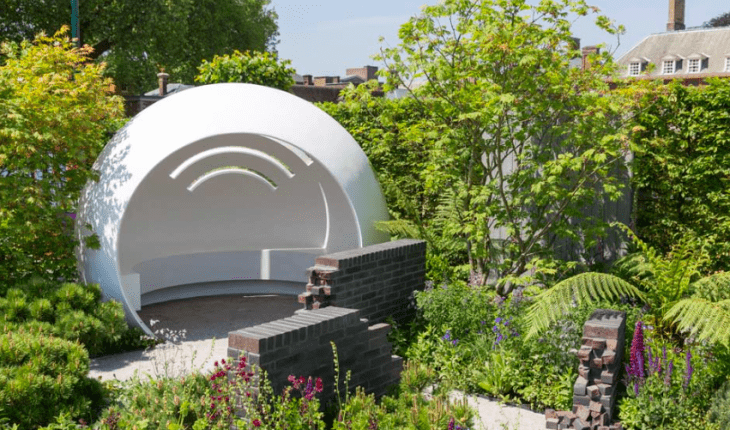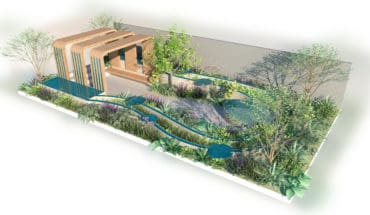The CHERUB HIV Garden conceived by Professor John Frater from the University of Oxford and Professor Sarah Fidler from Imperial College London, raises awareness of the journey of young people living with HIV and provides an opportunity for visitors to explore the challenges faced by them, reflect, heal and develop hope. Designed by Sussex-based Naomi Ferrett-Cohen, using over 1,000 plants, the garden was built by Turnham Landscaping.
Professor John Frater, from CHERUB commented: ‘HIV remains a global problem even though it is much less in the news. There are 37 million people living with HIV, and around two million people get infected every year – that’s one person every 15 seconds of every minute of every day. A child is infected every three and a half minutes.’
‘Despite the dramatic success of HIV treatment, which has changed HIV from being a death sentence into a manageable but lifelong condition, there’s still an enormous amount of HIV-associated stigma.
Despite the dramatic success of HIV treatment, which has changed HIV from being a death sentence into a manageable but lifelong condition, there’s still an enormous amount of HIV-associated stigma.
Coming to terms with HIV-related stigma is a key part of helping all people living with HIV to live a healthy life and to take their daily medication. Which is something we wanted to highlight in through this garden,’ he added.
Professor Sarah Fidler said: “The first important step towards finding a cure for HIV requires years of daily HIV medication which leads to very low levels of virus in the body. Once this has been achieved, we are searching for new ways to try and cure HIV. The NIHR-supported CHERUB collaboration is working together to look for new treatments and tests that might allow people to stop
‘My garden highlights the message that it’s possible to live openly and healthily with HIV,’ says Ferrett-Cohen. She explains that the white pod at the top of the garden represents the clinics the young people regularly attend, a cocoon of safety from the outside world. Her aim is for the garden to “lift visitors spirits” and “provide an oasis of calm” for reflection on the challenge faced by young people living with HIV in the frenetic heart of Chelsea.
The journey from the pod through the garden shows the journey towards a life of more freedom, and the obstacles encountered along the way, as the path through the planting is interrupted by three dark obstructing walls. Each wall is difficult to pass and is inscribed with words that young people growing up with HIV have chosen to describe how they feel about the stigma, secrecy and the daily struggles the face.
An open seating area provides a place for visitors to the garden to relax and feel uplifted by its beauty. Use of plants with a limited and minimal colour palette around the pod highlights the warmer and brighter plants in other areas of the garden. Other highlights of the garden include Acer Osakazuki, Acer Vitifolium, Acer Palmatum, Drimys winteri and Dicksonia antarctica.
The timing of the garden also coincides with the results of the ‘RIVER’ trial which has taken place in London and the UK – this is the first formal randomised trial exploring a possible cure for HIV infection. Results will be released in summer 2018.
The garden has been sponsored by CHERUB, which is a UK network of doctors, researchers and patients all working together to raise awareness of HIV and AIDS.
Young people from CHIVA (the Children’s HIV Association) were involved in the design of the garden, sharing their thoughts and experiences of growing up with HIV.
Although a seasoned designer and gardener, this is Ferrett-Cohen’s debut show garden for RHS Chelsea. Given the beauty of her ‘The Cherub HIV Garden’ – it is bound enthral visitors as well as raising awareness of HIV and dedicated scientific research into drugs to treat this illness.
- Fenella Fielding – Onstage, Offstage - 3rd November 2025
- ‘Trains of Thought: A Natural History of the Mind’ Review - 12th September 2025
- People’s Choice Victory for Down’s Syndrome Scotland Garden at Chelsea 2025 - 28th May 2025







